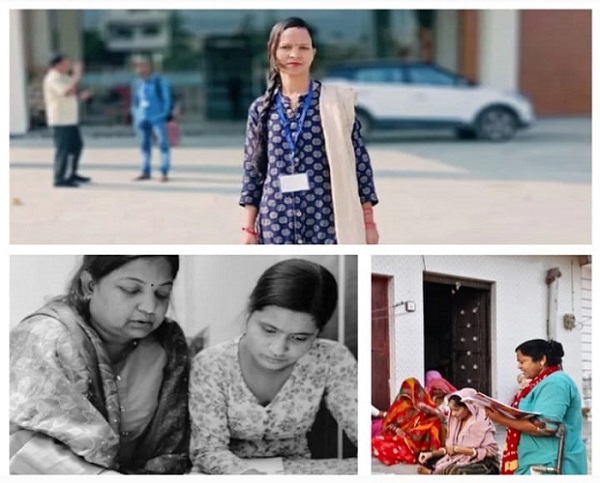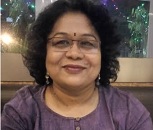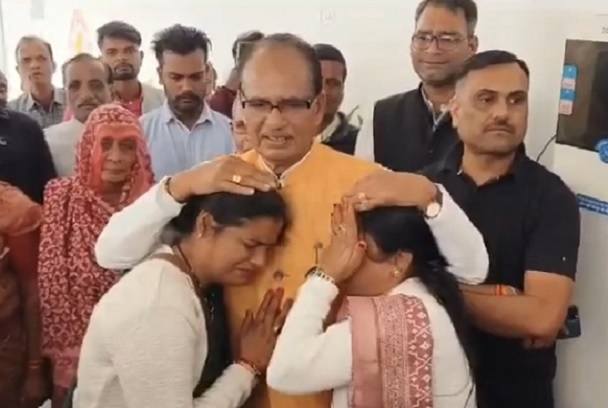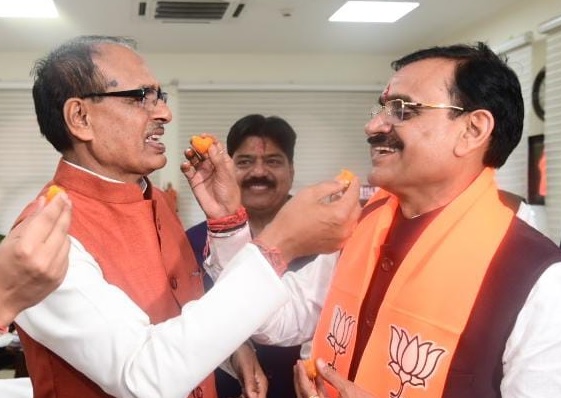Women become citizen champions and break barriers to bring about positive changes in society

Special Correspondent
NewsBits.in
There are some who stand up for themselves and make it good in life. Then there are those who go beyond and bring about much needed changes in the society, thereby bettering the lives of people around them.
On occasion of International Women’s Day, 2024, civic movement We, The People Abhiyan shared stories of three such women change-makers with NewBits under its ‘Breaking Barriers’ campaign. These women, citizen champions, broke the social barriers to bring about such positive social transformation.
Following are their stories as shared by WTPA:
Helping self and community
Basanti Devi, WTPA’s Constitution champion from Jharkhand's Koderma district, actively engages in the Gender community resource person (CRP) program with our friends Pradan.
She chose to participate in WTPA training sessions because of her strong belief in the transformative power of knowledge, and she has used her newfound knowledge to achieve significant achievements for herself and her community!
After the training, Basanti wanted to enrol her daughter in the 'Ladli Yojana' scheme. Despite submitting all required documents, the lack of updates led her to seek clarity from the local Child Development Project Officer (CDPO), but she received no response.
Using the confidence and knowledge she gained from the training sessions, she escalated the issue to the District Magistrate's office, where she finally received assurance about her daughter's enrolment.
Taking her mission further, Basanti joined Naari Adalat, advocating against injustices towards women. Facing distressing cases of domestic abuse, she and her team provided support and legal aid. A case that stood out to her, in particular, involved a young woman who was pressured to have a child with a man, which resulted in her being confined and assaulted when she refused. Basanti intervened quickly, guiding the family through legal channels for the woman's safe return.
Basanti is an embodiment of the principles enshrined in Indian Constitution, serving as an advocate for progress, tirelessly working to eliminate gender-based discrimination and violence. Through thick and thin, she perseveres to empower not only herself and her daughter but also all the women in her community.
Using Constitution as guiding light
Rohini Chhari, a citizen champion from Morena, Madhya Pradesh, is breaking the tradition of caste-based sex work within the Bedia community and fighting for the dignity of women and girls through her organisation, Bhumi Gramotthan Sansthan.
Through WTPA training, Rohini recognised the pressing need to promote Fraternity in our society. Shortly after, she witnessed two communities fighting over cremation of a man from a marginalised caste. The upper-caste community strongly objected to his cremation in the government-sanctioned ground. Without hesitation, she stepped in and registered a complaint with the Sarpanch, citing Article 15, which explicitly prohibits caste-based discrimination. Rohini also organised a meeting to promote better understanding between the communities, urging them to reflect on their actions and proposing ways to overcome their differences.
Rohini believes the Constitution is a guiding light for all citizens, as she mentions "If I, as a social worker, only support one side and ignore the other, I am no different from those promoting the divide." Her relentless dedication serves as a powerful example of how the Constitution can empower citizens to effectively champion the causes they believe in.
Promoting rights of disabled and women
Pappu Kunwar, is a citizen champion from Barmer district, Rajasthan. As a Samta Fellow with CORO India, she attended WTPA training sessions and has used the constitutional knowledge she gained from her experience to strengthen her advocacy for various social issues. This includes promoting the rights of disabled individuals and women, and addressing important welfare issues such as pensions, among many others.
One day in her district, two visually impaired siblings were denied entry onto a public bus, being told there was no reservation for them. Recognising this as a violation of their rights, Pappu quickly filed a complaint on their behalf. This led to the bus conductor and driver sincerely apologising to the siblings for their misconduct.
Coming from a society where girls are often seen as burdens and widows are denied vibrant lives, Pappu also took it upon herself to change this prevailing mindset. She mobilised women to advocate for themselves, mentioning, 'If we raise our voice for someone else, how long will that voice echo? We must teach people to raise their voices for themselves, so they can speak up when needed.'
Pappu dreams of opening a centre with good internet connectivity, where women and young girls can learn about their rights and spread their wings. This way, equality won't just be a word in the Constitution but will be seen as a social reality










